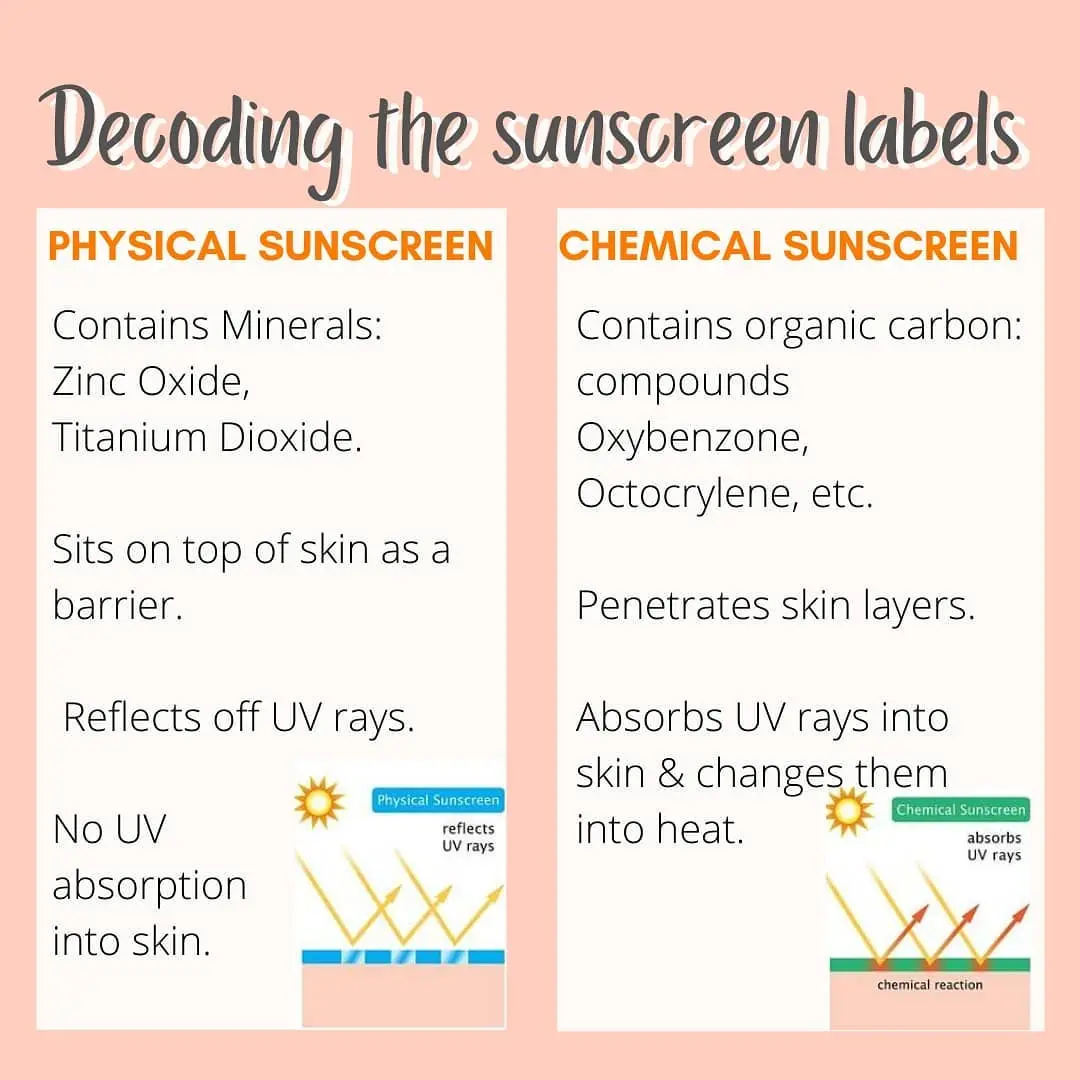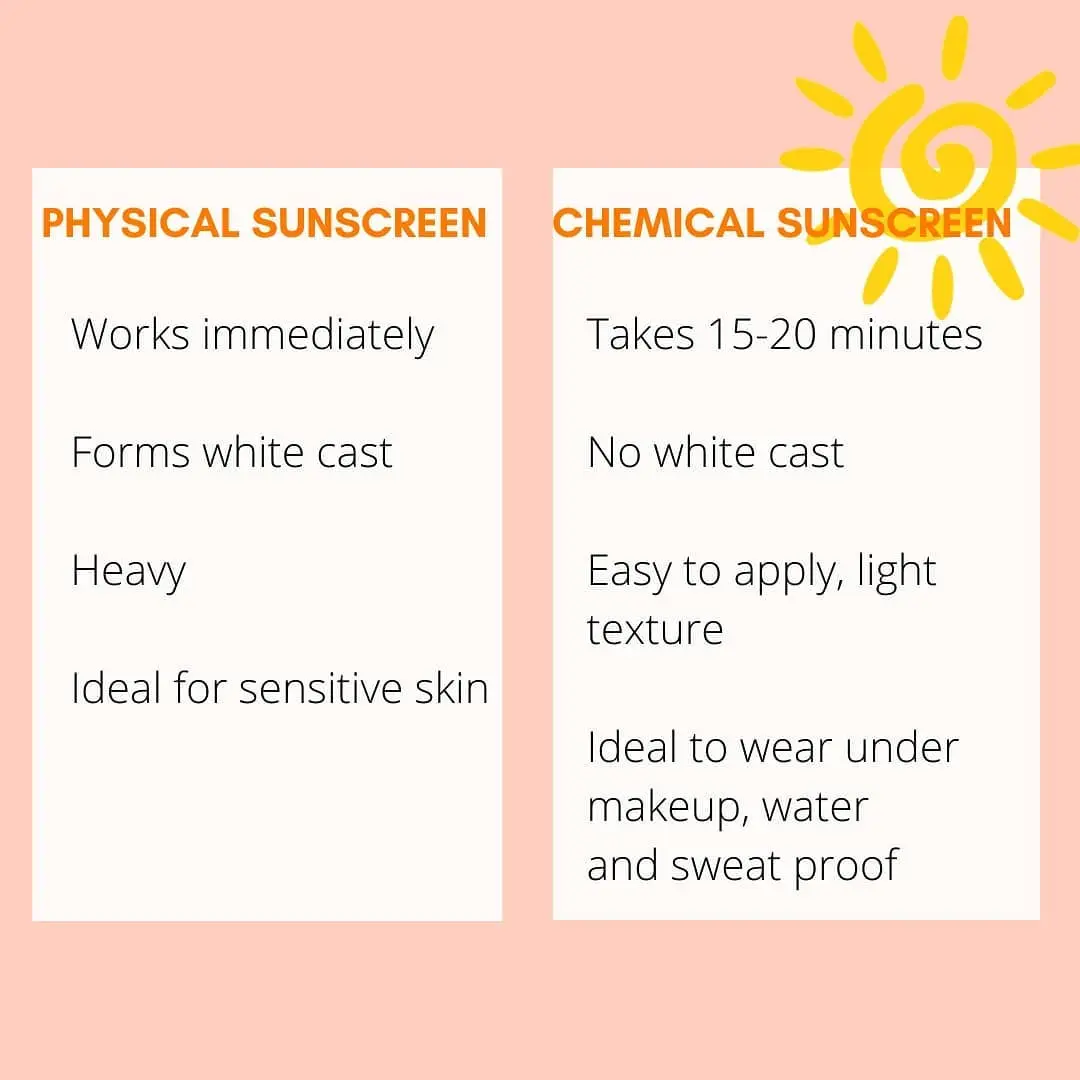Best Sunscreen for Oily or Dry Skin: Dermatologist Recommended (2026)
- Dr. Alpana Mohta
- Aug 3, 2023
- 8 min read
Updated: Jan 27
This article will cover the best sunscreen for oily skin and dry skin recommended by dermatologists. You don't need to read the complete article; skip to the section most relevant for you.
I am sure you already know why sunscreen is essential. And it's probably already a part of your skincare routine. If yes, congrats! I am happy for you. Simply by using sunscreen, you are saving your skin from just so many sun-exposure-induced conditions.
For those still unconvinced: Please know that sunscreen is the only product that can truly protect your skin from the sun’s harmful rays. When we step outside and expose ourselves to UV light, our bodies form free radicals that cause damage at a cellular level. This damage can lead to many health issues, including premature aging, wrinkles, sunspots, and even cancer.
Sunscreen—once the hallmark of summertime, is now a must for any season for anyone who cares about their skin.
Now that my spiel's over let's dive right in!
Table of Contents
Best Sunscreen for Oily Acne-Prone Skin Dermatologist Recommended
Oily skin produces excess sebum, leading to a shiny and greasy appearance. Using the wrong sunscreen can exacerbate the issue by adding more oil to the skin's surface.
Opt for oil-free or non-comedogenic sunscreens to avoid clogged pores and breakouts. These formulations are lightweight, fast-absorbing, and provide adequate sun protection. These sunscreens can and should be used daily.
Now, if you are looking for sunscreens with a tint, then head over to my article on the best tinted sunscreen for oily skin. The general sunscreens might not be suitable for people with a darker skin tones as these sunscreens can leave a white cast or residue. This is generally a concern of people who have darker skin tones. Tinted sunscreens come in a variety of shades to match the different skin tones.
Below I will talk about what I, as a dermatologist, think is/are the best sunscreen(s) for oily skin categorized by SPF and sex.
Best SPF 50 Sunscreen for Oily Skin
Acne UV Gel SPF 50 is the ultimate choice for oily skin, providing triple protection against harmful UVA and UVB rays.
This sunscreen effectively blocks up to 98% of sun rays, guarding against premature skin aging, wrinkles, dark spots, and tanning. It is designed specifically for oily skin and offers a clear matte look without the greasiness.
The light, quick-absorbing, and non-sticky formula make it perfect for everyday use and as a base for makeup.
Lacto Calamine Daily Sunscreen SPF 50 is a good alternative for those looking for a budget-friendly option.
Dermatologically tested and free from harmful parabens, this sunscreen is enriched with:
Purified water for quick absorption,
Kaolin clay to absorb excess oil and reduce pimples and blackheads, and
Lemon extract, which is rich in Vitamin C and helps fade dark spots and tanning.
Best SPF 30 Sunscreen for Oily Skin
Fixderma Shadow SPF 30+ gel takes the lead in SPF 30 sunscreens. This sunscreen offers extended broad-spectrum protection against UVA and UVB rays, achieving an SPF of 30 or higher.
Its water-resistant formulation ensures a longer residence time on the skin, forming a thin shield of protection that remains intact even during excessive perspiration or water exposure.
The best part is that it doesn't leave a tacky feeling upon application, providing a smooth and easy experience. Key ingredients such as Octinoxate, Benzophenone-4, Zinc oxide, and Avobenzone work together to safeguard the skin from harmful rays.
Best Sunscreen for Men with Oily Skin
Since men have facial hair, applying physical sunscreen, AKA mineral sunscreen, can cause deposition of the sunscreen in between the hair (also known as white-casting). To avoid this, men with oily skin should use either gel-based physical sunscreens or chemical sunscreens.
The best choice would be Minimalist Sunscreen SPF 50 Lightweight.
You may also find reading this article on skincare tips for men useful.
Best Sunscreen for Females with Oily Skin
Women can use any of the sunscreens mentioned above.
If you are looking for something with a dual effect, i.e., it also acts as a primer, then you can use Acne-UV gel or Solasafe.
Best Sunscreen for Dry Skin Dermatologist Recommended
Dry skin lacks natural moisture and tends to be tight, flaky, and prone to irritation.
Sunscreens designed for dry skin contain moisturizing ingredients to hydrate and nourish the skin while offering sun protection. These sunscreens are often creamier and more emollient, helping to replenish moisture and prevent further dryness.
They provide a protective barrier against the sun's harmful rays while keeping the skin hydrated and supple. Again, just like sunscreens for oily skin, these sunscreens should also be used daily.
Best SPF 50 Sunscreen for Dry Skin
Undry Hydrating Sunscreen for Dry Skin is specifically designed for both men and women with dry skin.
Dermatologically tested, this sunscreen lotion gel offers broad-spectrum protection without leaving a white cast. It is non-oily and suitable for use on both the face and body.
Apply this hydrating gel-based sunscreen as the final step of your skincare routine for quick absorption and lasting protection.
Keep your skin hydrated, protected, and healthy with this essential SPF 50 sunscreen for both women and men with dry skin.
Below I will talk about what I, as a dermatologist, think is/are the best sunscreen(s) for dry skin categorized by SPF and sex. I have considered all the above factors while finalizing my recommendations.
Best Sunscreen for Men with Dry Skin
As discussed in the sunscreen for oily skin section, the only reason I would advise men to use a specific type of sunscreen is cosmetic; applying physical sunscreen can cause deposition of the sunscreen in between the facial hair (also known as white-casting).
To avoid this, men with dry skin should use either gel-based physical sunscreens or chemical sunscreens.
I would suggest the same sunscreen as I suggested for oily skin as this works for different skin types: Minimalist Sunscreen SPF 50 Lightweight.
Best Sunscreen for Females with Dry Skin
Similar to what I said in the section for oily skin, women can use any of the sunscreens mentioned above. If you are looking for something with a dual effect, i.e., it also acts as a primer, then you can use Rivela Lite Sunscreen (weightless mousse) and will also provide a matte finish.
Sunscreen with Actives like Niacinamide or Hyaluronic Acid
Sunscreens with other active ingredients like niacinamide or hyaluronic acid provide additional skin benefits like reducing redness, improving skin tone, and hydration. However, these ingredients do not enhance the sunscreen's UV protection. The effectiveness of sunscreen is determined by its SPF and broad-spectrum coverage, so always choose a product with adequate sun protection, even if it includes these extra actives for skincare benefits. Having said that, below are two sunscreens that contain these actives and are highly regarded for their effectiveness:


How to Use Sunscreen?
Use enough to cover all skin not covered by clothing. Most adults require about an ounce of sunscreen to fully cover their bodies.
Don't forget to apply sunscreen evenly to your face, arms, back of neck and ears.
Apply 15 minutes before going outdoors.
Skin cancer can form on your lips as well, so to protect them from the sun's ultraviolet rays, always apply sunscreen with an SPF of 30 or higher.
Whenever you are outdoors during the daytime (even if it's cloudy), reapply sunscreen about every two hours (or after swimming or sweating). Do you know the quickest and hassle-free way of applying sunscreens when outdoors? Use a sunscreen stick. I use it all the time when I am outdoors.
How Much Sunscreen to Use on the Face
The ideal amount of sunscreen for your face is about half a teaspoon. This amount ensures that all areas, including the forehead, nose, cheeks, and chin, are adequately covered.
A helpful rule of thumb is the "two-finger method" – use enough sunscreen to cover the length of your index and middle fingers.

For oily or dry skin types, the quantity remains the same, but the formulation may vary.
Regardless of your skin type, the right amount is crucial to avoid UV damage and keep your skin healthy.
Which is Better, SPF 30 or 50?
SPF 30 and SPF 50 both offer substantial sun protection, with SPF 50 providing a slightly higher level of defense. SPF 30 blocks 97% UVB radiation from reaching your skin, while SPF 50 blocks 98% UVB radiation. If you have fair or sensitive skin or are prone to sunburns, using SPF 50 can be beneficial.
Also, people with sensitive skin should use fragrance-free sunscreen.
However, be informed that no sunscreen can provide 100% protection.
Other factors, such as application method, frequency, and proper coverage, are also critical for effective sun protection. Additionally, SPF only measures UVB protection, so it's important to choose a broad-spectrum sunscreen that protects against both UVA and UVB rays for comprehensive sun protection.
Is PA Rating Important?
The PA rating (an abbreviation of the Protection Grade of UVA) indicates the level of defense offered by your sunscreen against UVA rays, which are responsible for skin aging and long-term damage.
While SPF only tells about UVB protection, harmful radiations from the sun also include UVA, and UVC, with UVC being the most damaging, followed by UVB and UVA. Although the ozone layer blocks UVC, we still need protection from UVA.
Choosing a sunscreen with a higher PA rating, such as PA+++ or PA++++, ensures stronger protection against UVA radiation and helps safeguard your skin from premature aging and potential sun damage. The more the no. of plusses (+), the better.
What is the Difference Between a Physical and Chemical Sunscreen?
Physical Sunscreen | Chemical Sunscreen |
Contains Minerals: Zinc Oxide, Titanium Dioxide. | Contains organic carbon compounds: Oxybenzone, Octocrylene, etc. |
Sits on top of the skin as a barrier. | Penetrates skin layers. |
Reflects off UV rays. No UV absorption into the skin. | Absorbs UV rays into skin & changes them into heat. |
Works immediately | Takes 15-20 minutes. |
Forms white cast | No white cast. |
Heavy | Easy to apply, light texture. |
Ideal for sensitive skin. | Ideal to wear under makeup, water, and sweat proof. |
Should You Use a Sunscreen Even When It's Cloudy?
The answer is YES! You might want to go on a vacation when it rains, but the sun won't. The sun is still there, even when it's hidden by a veil of clouds or rain. These ultraviolet and visible radiations can easily penetrate even a thick layer of clouds. Therefore, regardless of the climate, scourging sunny, pleasantly cloudy, rainy, or even foggy and freezing cold, you should always have your sunscreen with you.

However, many of us find it unpleasant to use sticky sunscreens in this season due to the humid climate. Despite the presence of such a wide variety of sunscreens in the market, it is often very confusing for consumers to pick the right sunscreen for their skin type. We must realize that when it comes to sunscreens, one skin type might require different types of sunscreens depending on the weather.
One last thing: if you’re going to go outside, wear a hat. You’ll thank me later. And if you are too cool to wear a hat, you might want to invest in a hair sunscreen. Why? Read the article on how the sun can damage your hair, and again, thank me later.







Comments